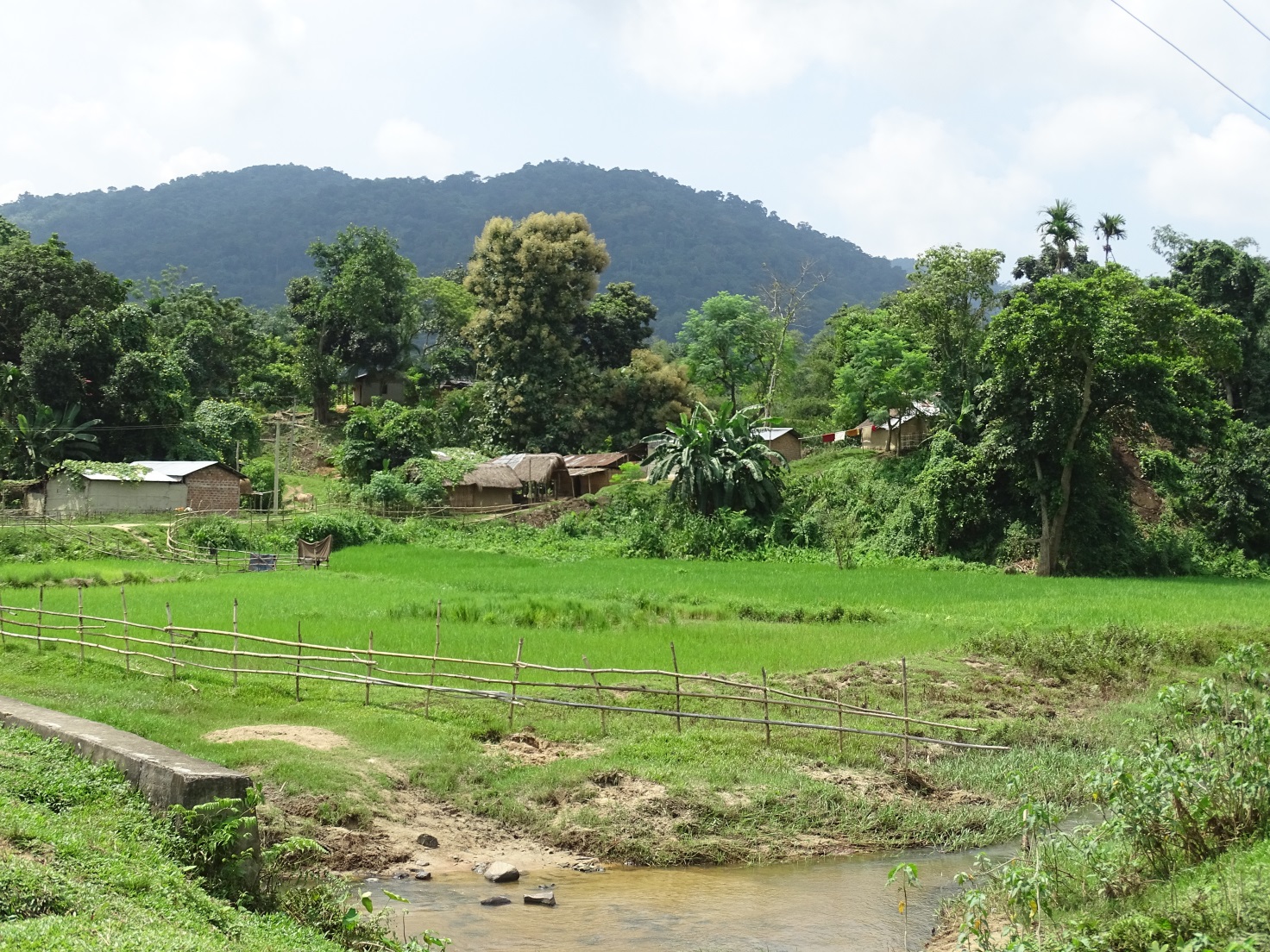Karbi Anglong: Participatory modeling and integrated landscape approaches for development and conservation
Project at a glance
Slash and Burn, also known as shifting cultivation, is one of the most ancient forms of natural resource management. Patches of land are cleared and used for agricultural production for a few years before a new area is cleared. With plenty of land available and long fallows, the system is sustainable, with soil fertility and ecological diversity remaining high. Problems arise when land becomes scarce, and the fallow periods shorten. Intervention is needed as the interactions between the ecological processes and the livelihood strategies developed by the farmers to meet their needs send the local socio-ecological system in a downward trajectory of depletion of natural capital and increased vulnerability of the stakeholders. However, top down sectorial national policies with poor understanding of the drivers often tend to increase the social and environmental costs of this transition.
The Karbi Anglong Hills in Assam, India, offer refuge for the flagship and threatened species (Tiger, Asian Rhino, Asian Elephant, Wild Water Buffalo and Eastern Swamp Deer, among others) of Kaziranga National Park (a UNESCO world heritage site) during the monsoon floods.. The combination of slash-and-burn by local farmers and increased population pressure has raised concerns on the sustainability of the system and its capacity to continue sustaining the livelihoods of the hill tribes and at the same time offer refuge for the wildlife. In order for the landscape to accommodate this apparently conflicting objectives, a better understanding of the drivers of land use change is essential, grounded in a sound understanding of the local empirical knowledge. Only then can possible alternative natural resource management strategies be explored.
Objectives
The study’s general research objective is to draw lessons on how to design, implement and replicate an adaptive management strategy for slash and burn landscapes based on (1) the assessment and elicitation of Local Ecological Knowledge, and (2) an integrated model coupling social and environmental layers developed through participatory modelling approaches explicitly building on the local knowledge system.
Specifically the project will aim at the identification of locally relevant development objectives, helping stakeholders in the slopes of the Karbi Anglong Hills to formulate and explore alternative livelihood futures, helping to better balance their development needs with the conservation objectives of the government, ensuring food security for the upland tribal communities and improving connectivity between the wetlands and the forests.
In pursuing the general research objective, the PhD candidate will: (1) Test whether or not Local Ecological Knowledge on slash and burn cultivation transcends caste and ethnic boundaries, (2) Weight the perceived impacts of socio political drivers of change against those of biophysical and agronomic constraints that shape the landscape dynamics of the Karbi Anglong Hills; and (3) Assess the appreciation of the participatory modelling process by the stakeholders involved against the perceived usefulness of both the models and the scenarios generated.
Expected results
The project will deliver scientific outputs that can make direct contributions to applications in conservation policy and management research, but also to the real-world setting. For example, the Kaziranga policy makers envision the rehabilitation of the lands through “innovative community based afforestation / agroforestry schemes, with the forest department as the nodal agency to ensure primacy of conservation”, but these modalities are yet to be implemented or even defined.
Methods
One of the pillars of our study is the Local Ecological Knowledge (LEK) framework. We choose to adopt the definition of LEK as the knowledge people in a particular locality have about their environment (Sinclair & Joshi 2000). We refer to empirical knowledge obtained through the accumulation of observations and experiences independently of cultural affiliations. We also distinguish between knowledge and practice – recognizing that what farmers do and know are very different things. The Agroecological Knowledge Toolkit (AKT - http://akt.bangor.ac.uk/ ) will be used as the protocol to identify, elicit and gather LEK, from farmers and scientists alike.
From an understanding of the socio-ecological system, we will then explore alternative land management strategies using the Companion Modeling (ComMod) approach (http://cormas.cirad.fr/ComMod/en/). ComMod is a participatory modelling approach to natural resources management that has been designed to address specifically the challenges associated with models build around social and environmental drivers. The foundation of ComMod is the willingness to incorporate on equal footing the multiple and often conflicting viewpoints of the stakeholders involved in the management of natural resources, in order to make the model meaningful for all stakeholders. Maybe more importantly, this process will build trust between the research team and the stakeholders and strengthen confidence on the model. Through workshops facilitated by the researcher, the stakeholders will collectively decide and organise the knowledge they consider relevant for the problem at stake.
Partner
French Institute of Pondicherry
Funder
ETH Zürich Grant Program
Duration of the project
March 2014- February 2017
Contact
No database information available
